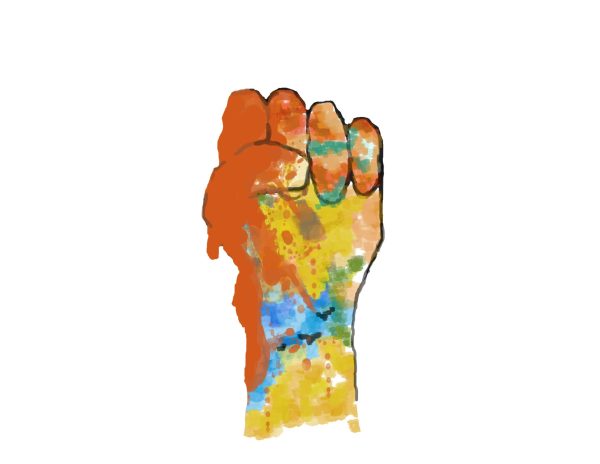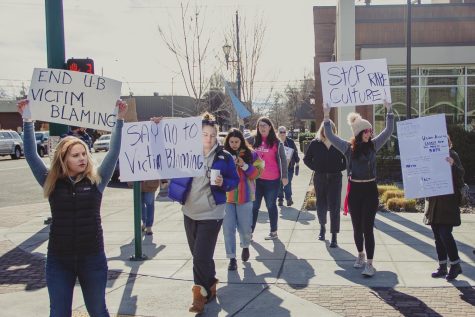Op-Ed: Standing with (but not at) Standing Rock
November 2, 2016
Last week, I was one in a group of Whitman students planning a trip to support the activists at Standing Rock over the holiday break. This week, unofficial word came to us that the pipeline was about to reach the Missouri River and a critical juncture in the movement was imminent. Students mobilized and multiplied, and cars were readied to set off for North Dakota.
I began emailing professors and preparing to drive 16 hours to join the Water Protectors on the front line; but after agonizing deliberation, I decided not to go (at least, not yet). Here are my reasons and some ideas on how you, too, could help support this action from here in Walla Walla.
Without proper preparation and notice to the camp organizers, some of the groups showing up unexpectedly for short stays can be just as harmful as helpful. Not to mention the irony in driving four cars 30 hours to make a stand protecting land, water, and human rights from oil transport. I felt that using roughly 500 gallons of gas (for the four vehicles) to get to ND and back was adding to the justification for the pipeline and that the money to purchase that gas could be used to donate medical supplies, legal support, and camp needs for those already on the front line.
For me, going right now would likely mean staying for a lot longer than a weekend, which could mean sacrificing the semester and with it, a diploma in May (one which I hope will better help me incite action in the future). I applaud my peers that are currently en route to the site, but I recognize that there are many different forms of activism. Thus, we all need to act according to our own needs in order to best support this movement and any other. Remember that any action you can take is the best action you can take.
So, here’s what I am doing, short of driving to Standing Rock; and, what you could do to join the good fight, too.
- Find out what is DAPL, who is fighting it, and why.
- If you can, donate money or supplies directly to the camps and legal defense funds.
https://www.gofundme.com/sacredstonecamp
https://fundrazr.com/campaigns/d19fAf
http://www.ocetisakowincamp.org/donate
- Find out if your bank supports this project. If so, make a change. Here is a list of major investors in Dakota Access and Energy Transfer: http://www.foodandwaterwatch.org/news/who’s-banking-dakota-access-pipeline
- Pick up the phone. There is a long list of government officials, law enforcement officers, and investors that can be contacted about their roles in this project. One list can be found here: http://www.yesmagazine.org/people-power/dial-a-cop-20161031
- Spread the word and hold others accountable. Stay after class to talk to your professors about the pipeline, call your friends and family back home, e-mail your high school teachers or your old swim coach and encourage others to take dramatic action. Social media is a great way to keep the conversation going and to keep it in the view of mass media.
- Go to Standing Rock. There is a great need for people on the front lines and if you or someone you know is close to the area and has the time and ability to get there and stay there, go. When you go, do your reading first, be respectful, and show up prepared and dedicated.
If the protest at Standing Rock continues into next month, I may yet find myself on the front lines. But in the meantime, I pledge to send $100 to the legal defense fund (representing the money I would have spent on my share of the gas), and to spend time I would have spent sitting in the car, collecting and sending donations and supplies to the camps, raising awareness and educating others about the pipeline construction, and taking long-distance political action against those behind the Dakota Access Pipeline project. What will you do?








